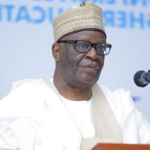
There have been rising cases of physical abuse in relationships, with men ending up being injured, maimed or killed. I read a report last week about a young girl Hannah Osazuwa who stabbed her boyfriend Tomide Akintoye with a pair of scissors in Lagos and he died on the way to the hospital. At the comments section of that report, a reader took time to enumerate many incidences in the recent past where men were victims of spousal abuse.
Spousal abuse is often used interchangeably with domestic violence or domestic abuse. However, domestic violence is broader and may include abuse of other family members like children, helps or even parents. So, spousal abuse can be defined as any abusive conduct between intimate partners who are married, dating or co-habiting.
It more often than not takes a pattern of constant or recurring abuse over time, and involves some form of physical violence committed by one partner against the other. It could also involve emotional or mental abuse, verbal abuse (such as threats of physical harm, intimidating or degrading language), economic abuse – this may include acts such as withholding basic living expenses, or failing to provide necessities such as food, clothing or shelter.
Whenever domestic violence is mentioned, it is often assumed that the victims are women. This is because domestic violence is often seen as a female victim/male perpetrator problem. Today however, my focus is on the men folk because society seems to forget that a lot of them are victims of spousal abuse which most times go unreported.
When their partners assault men, police often ignore them, their attackers usually go free and these men have few or no places to flee to unlike the women. There was a funny incident of a man who went to the police station to report about his wife beating him. The officer whom the case was assigned to, told him to go back home and put on a skirt because he cannot ‘enter’ the case as “husband battering”. The policemen simply made a joke of him and asked him to go and take charge of his home.
I have heard about women who go to their husband’s offices to fight or embarrass them over domestic issues that have nothing to do with the work place. I have seen a woman who fought her husband at a shopping mall for keeping the car too long with him, and I have seen a pastor’s wife who has embarrassed her husband countless times in public knowing that the pastor risks being suspended from Church if he as much as raises a finger against her.
While growing up, one of my friend’s dad was a victim of spousal abuse. It was her mum that called the shots at home. She insults him at will (even in the presence of their children’s friends), calls him names, prevents him from going to work sometimes, stops him from seeing his family members and friends, controls how he spends money and where he goes to, and when she has a reason not to give him food, then that’s it.
Let’s not even talk about the physical violence. And then she would turn around and blame the poor man for her behaviour. We used to gossip a lot about them back then. Everyone in the neighbourhood agreed that the woman was controlling her husband with “juju” but now, I think I know better.
But why is abuse among men unreported until it turns fatal?
Mrs Nonye Udensi, a psychologist, says “Nigeria is a patriarchal society and so many men don’t seek help or even complain about domestic abuse because they fear that it will make them look weak. A lot of men don’t report abuse by their partners due to shame. They would rather remain passive in the relationship because for a lot them, their self-worth has actually been shattered.
“The truth however is that there are few actions that require as much bravery as walking away from an abusive relationship. To take the steps needed to end spousal abuse is not weakness. It’s actually a sign of strength.”
Talking about men as victims of abuse in this write up is not in any way meant to downplay domestic violence among women. It is however intended to show that anyone can be the victim of domestic abuse and so everyone who needs help and protection deserves to have access to it.
 Join Daily Trust WhatsApp Community For Quick Access To News and Happenings Around You.
Join Daily Trust WhatsApp Community For Quick Access To News and Happenings Around You.


